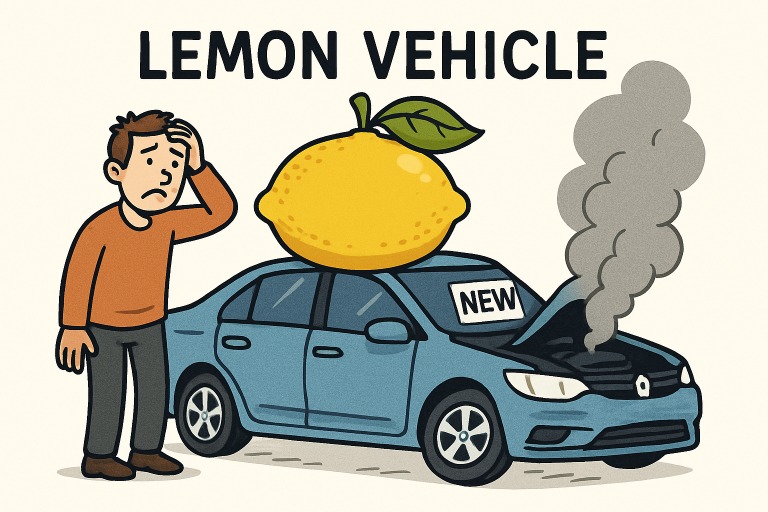What Exactly Is a Lemon Law and How Does It Protect Car Buyers?
Purchasing a new car should be an exciting and positive milestone. Yet, for some buyers, that new vehicle brings only frustration due to persistent, unfixable defects. When a new car repeatedly fails to meet performance or safety standards, lemon laws can provide crucial protection for consumers. Anyone facing such a headache might consider consulting a lemon law attorney in Orlando Florida, to help navigate these complicated situations and maximize their chances of a successful resolution. Lemon laws ensure buyers are not left stranded with unreliable or unsafe cars. If repeated repair attempts fail, the law may require the manufacturer to replace the vehicle or refund the buyer. Understanding how these laws work, the differences across states, and recent developments is essential for anyone investing in a vehicle. In addition to knowing your rights, it’s important to document your experience thoroughly, know your state’s laws, and act decisively if your car seems to be a lemon. This guide will clarify what lemon laws are, their origins, how they protect consumers, and what steps to take if you suspect your vehicle qualifies as a lemon. Staying informed about both state and federal protections ensures you are prepared, should car trouble arise with your new purchase.
Definition of Lemon Laws
Lemon laws are specific consumer protection statutes that provide recourse for buyers who purchase vehicles with significant, recurrent defects. These laws usually apply to new cars that, after a reasonable number of repair attempts, still do not meet an expected standard for functionality, safety, or value. The criteria for a car to be classified as a “lemon” will vary by state, but always involve unresolved defects that substantially impair the vehicle.
History and Origin
The use of the word “lemon” to describe faulty products can be traced back to the early 1900s, though the first official lemon law in the U.S. wasn’t enacted until 1982 in Connecticut. This legislation was soon adopted in other states, each tailoring the details to local needs and consumer behaviors. Now, all states have some form of lemon law, reflecting a strong tradition of automotive consumer protection in the United States. The continued evolution of these statutes highlights the need for legal structures that adapt to changes in automotive technology and consumer expectations.
How Lemon Laws Protect Consumers
Lemon laws are designed to shield consumers from the financial and safety risks of defective vehicles. The principal protections include:
- Repair Attempts: The manufacturer typically receives a set number of opportunities to repair the defect. If the repairs are unsuccessful or the car spends excessive time in the shop, the car may qualify as a lemon.
- Refund or Replacement: Qualified consumers may receive a full refund for the vehicle, including taxes and fees, or a replacement vehicle of equal value.
- Coverage for Related Costs: In some states, additional costs such as towing, rental vehicles, or out-of-pocket repairs may be reimbursed.
State vs. Federal Lemon Laws
Lemon law protections are governed mainly at the state level, and the specifics — such as qualifying defects or required repair attempts — can vary substantially from one state to another. Some state laws include used cars if certain conditions are met, while others do not. In addition to state laws, the federal Magnuson-Moss Warranty Act offers further recourse for buyers of defective new and, in some cases, used vehicles. Federal law extends the scope of recovery beyond vehicles, covering any consumer product with a written warranty, but it is frequently invoked alongside state lemon law claims.
Steps to Take If You Have a Lemon
If you believe your vehicle is a lemon, several steps can improve the chances of a successful resolution:
- Document Everything: Track each repair attempt, all communication with the dealer or manufacturer, and any additional expenses linked to the defect.
- Know Your Rights: Research your particular state’s lemon law statutes to fully understand eligibility and requirements.
- Notify the Manufacturer: You may be required to formally alert the manufacturer in writing, giving them a final opportunity to address the defect.
- Seek Legal Advice: Consult with a lemon law attorney, especially if your case involves significant sums or complicated circumstances.
Common Misconceptions
- Only New Cars Qualify: Some states extend lemon law protection to used vehicles still under warranty, not just newly-purchased cars.
- Quick Resolutions: Lemon law cases often require several repair attempts and extensive documentation; immediate refunds or replacements are unusual.
- All Defects Are Covered: The law only covers substantial issues affecting the car’s use, safety, or value, not minor or cosmetic defects.
Recent Developments in Lemon Laws
Lemon laws are periodically updated to reflect shifting consumer needs and market realities. In 2024, Colorado broadened its lemon law protections, expanding coverage to additional vehicle categories and extending claim deadlines. California, a state with some of the country’s most robust lemon laws, also introduced reforms to further clarify consumer rights. Such changes mean that even seasoned car buyers should review the latest updates before taking action if they encounter a lemon.
Conclusion
Lemon laws serve as an essential safety net for car buyers, ensuring that no one is stuck with a defective vehicle without an avenue for recourse. Whether you’re buying new or certain used vehicles, being aware of both state and federal protections can save you time, money, and stress. When in doubt, thorough documentation and advice from a qualified lemon law attorney ensure that your rights are protected and your investment is safeguarded.







